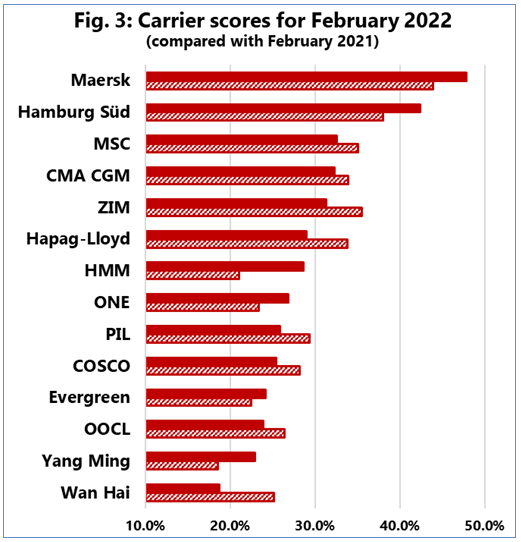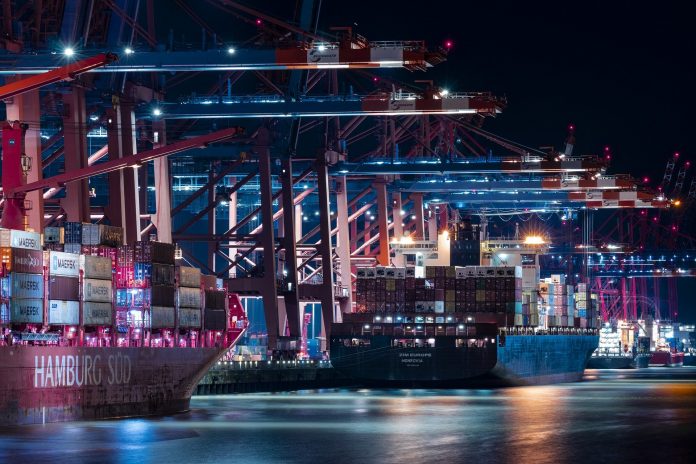Global schedule reliability improved by 4% month-on-month in February 2022, reaching 34.4%, according to research conducted by Sea-Intelligence.
The company’s analysts noted that this is the first significant month-on-month improvement we have seen in schedule reliability since March 2020.

In February 2022, the schedule reliability score was only marginally lower compared to the same month of the previous year, according to Sea-Intelligence’s data.
Meanwhile, the average delay for late vessel arrivals also improved month-on-month, decreasing by -0.77 days to 7.11 days in February 2022.
“That said, the delays have now been over seven days since August 2021, and continue to be the highest across each month when compared historically, as the delay figure for February 2022 was 0.16 days higher year-on-year,” explained Alan Murphy, CEO, Sea-Intelligence.
Maersk was once again the most reliable carrier in February, with schedule reliability reaching 47.8%, followed by Hamburg Süd with 42.4%, as seen below.

Only MSC, CMA CGM, and ZIM had schedule reliability between 30%-40%, while eight shipping lines including Hapag-Lloyd, HMM, ONE, PIL, Evergreen, OOCL, and Yang Ming recorded schedule reliability of 20%-30% in February.
Only Wan Hai had schedule reliability of under 20%, to 18.7%, making it the least reliable of the top-14 carriers. At the same time, HMM was the only carrier that represented a month-on-month decline in schedule reliability, while Evergreen registered the largest improvement.







